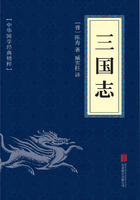OF ALL topics relating to the theory of representative government, none has been the subject of more discussion, especially on the Continent, than what is known as the question of the Two Chambers.
It has occupied a greater amount of the attention of thinkers than many questions of ten times its importance, and has been regarded as a sort of touchstone which distinguishes the partisans of limited from those of uncontrolled democracy. For my own part, I set little value on any check which a Second Chamber can apply to a democracy otherwise unchecked; and I am inclined to think that if all other constitutional questions are rightly decided, it is but of secondary importance whether the Parliament consists of two Chambers, or only of one.
If there are two Chambers, they may either be of similar, or of dissimilar composition. If of similar, both will obey the same influences, and whatever has a majority in one of the Houses will be likely to have it in the other. It is true that the necessity of obtaining the consent of both to the passing of any measure may at times be a material obstacle to improvement, since, assuming both the Houses to be representative, and equal in their numbers, a number slightly exceeding a fourth of the entire representation may prevent the passing of a Bill; while, if there is but one House, a Bill is secure of passing if it has a bare majority. But the case supposed is rather abstractedly possible than likely to occur in practice. It will not often happen that of two Houses similarly composed, one will be almost unanimous, and the other nearly equally divided: if a majority in one rejects a measure, there will generally have been a large minority unfavourable to it in the other; any improvement, therefore, which could be thus impeded, would in almost all cases be one which had not much more than a ****** majority in the entire body, and the worst consequence that could ensue would be to delay for a short time the passing of the measure, or give rise to a fresh appeal to the electors to ascertain if the small majority in Parliament corresponded to an effective one in the country. The inconvenience of delay, and the advantages of the appeal to the nation, might be regarded in this case as about equally balanced.
I attach little weight to the argument oftenest urged for having two Chambers- to prevent precipitancy, and compel a second deliberation; for it must be a very ill-constituted representative assembly in which the established forms of business do not require many more than two deliberations. The consideration which tells most, in my judgment, in favour of two Chambers (and this I do regard as of some moment) is the evil effect produced upon the mind of any holder of power, whether an individual or an assembly, by the consciousness of having only themselves to consult. It is important that no set of persons should, in great affairs, be able, even temporarily, to make their sic volo prevail without asking any one else for his consent. A majority in a single assembly, when it has assumed a permanent character- when composed of the same persons habitually acting together, and always assured of victory in their own House- easily becomes despotic and overweening, if released from the necessity of considering whether its acts will be concurred in by another constituted authority. The same reason which induced the Romans to have two consuls makes it desirable there should be two Chambers: that neither of them may be exposed to the corrupting influence of undivided power, even for the space of a single year. One of the most indispensable requisites in the practical conduct of politics, especially in the management of free institutions, is conciliation: a readiness to compromise; a willingness to concede something to opponents, and to shape good measures so as to be as little offensive as possible to persons of opposite views; and of this salutary habit, the mutual give and take (as it has been called) between two Houses is a perpetual school; useful as such even now, and its utility would probably be even more felt in a more democratic constitution of the Legislature.
But the Houses need not both be of the same composition; they may be intended as a check on one another. One being supposed democratic, the other will naturally be constituted with a view to its being some restraint upon the democracy. But its efficacy in this respect wholly depends on the social support which it can command outside the House. An assembly which does not rest on the basis of some great power in the country is ineffectual against one which does. An aristocratic House is only powerful in an aristocratic state of society. The House of Lords was once the strongest power in our Constitution, and the Commons only a checking body: but this was when the Barons were almost the only power out of doors. I cannot believe that, in a really democratic state of society, the House of Lords would be of any practical value as a moderator of democracy.
When the force on one side is feeble in comparison with that on the other, the way to give it effect is not to draw both out in line, and muster their strength in open field over against one another. Such tactics would ensure the utter defeat of the less powerful. It can only act to advantage by not holding itself apart, and compelling every one to declare himself either with or against it, but taking a position among, rather than in opposition to, the crowd, and drawing to itself the elements most capable of allying themselves with it on any given point; not appearing at all as an antagonist body, to provoke a general rally against it, but working as one of the elements in a mixed mass, infusing its leaven, and often ****** what would be the weaker part the stronger, by the addition of its influence. The really moderating power in a democratic constitution must act in and through the democratic House.















